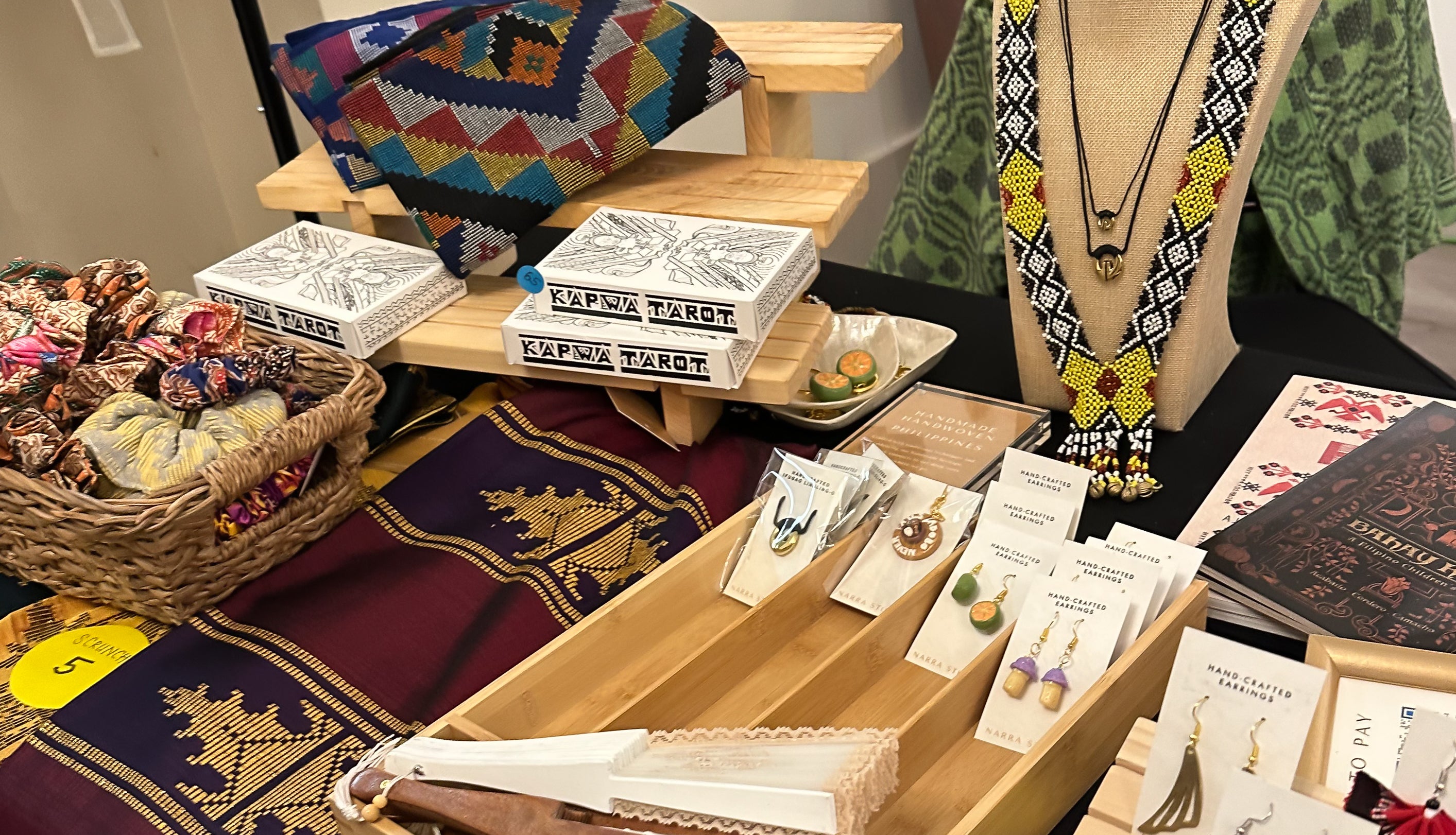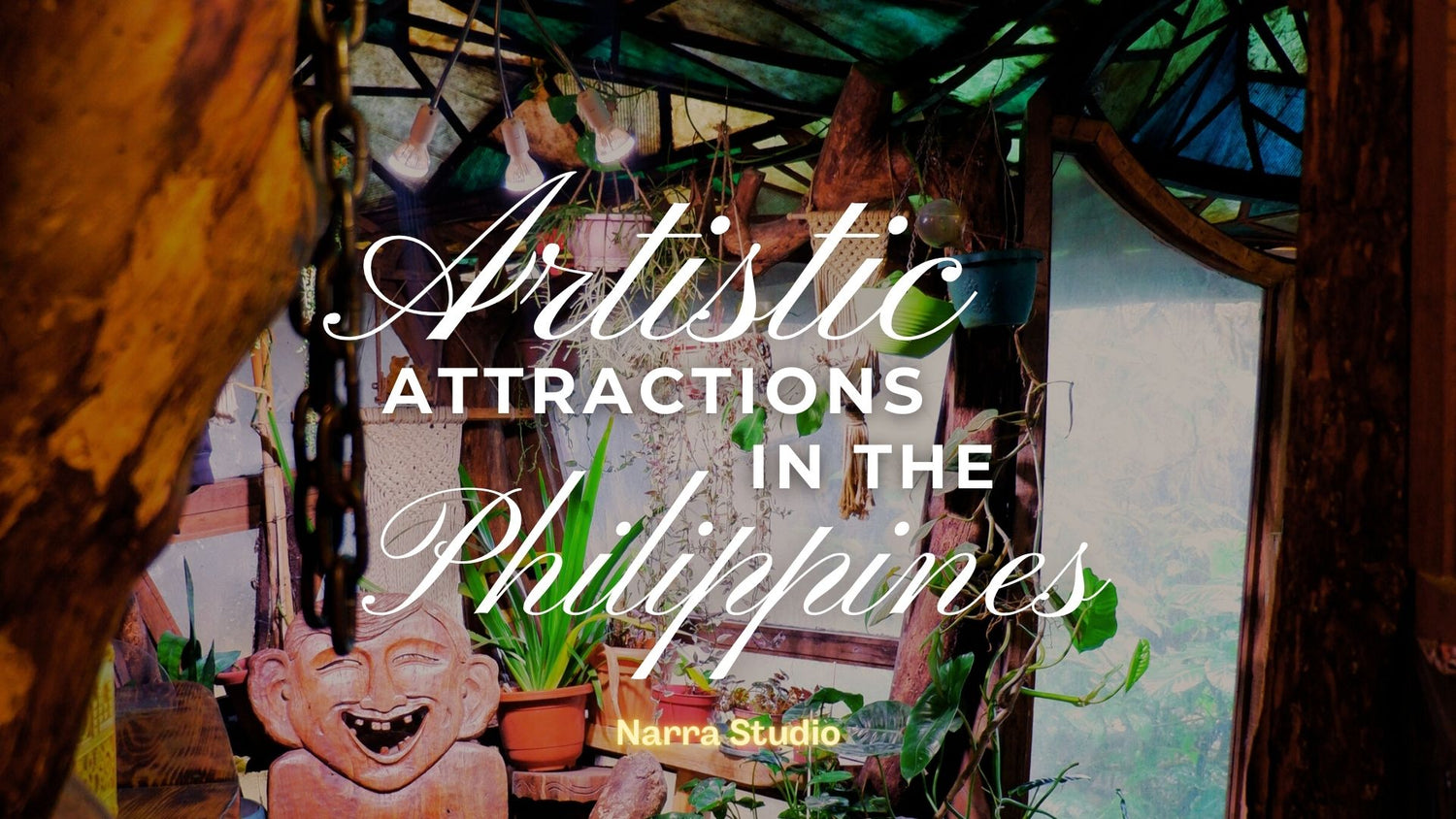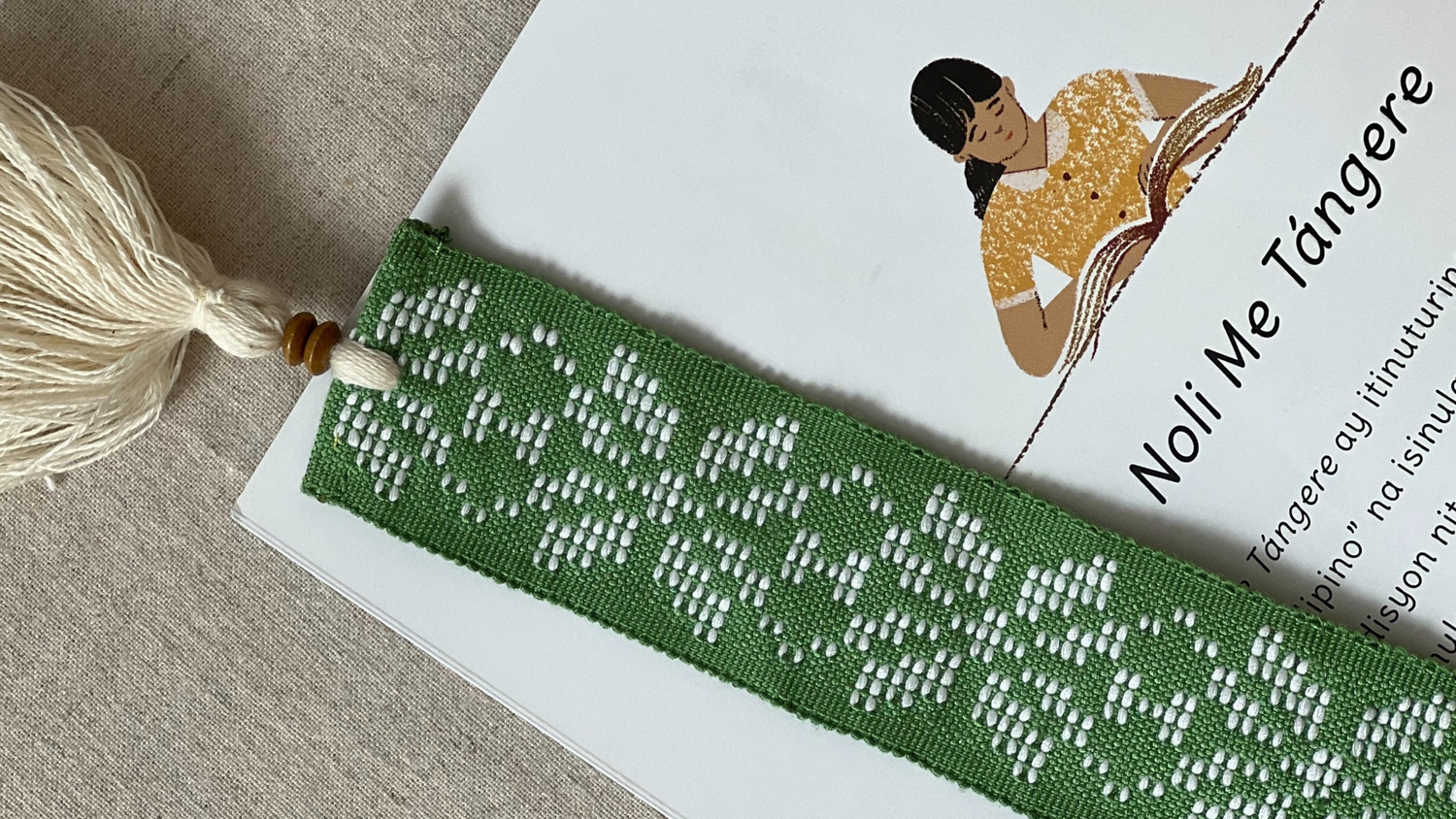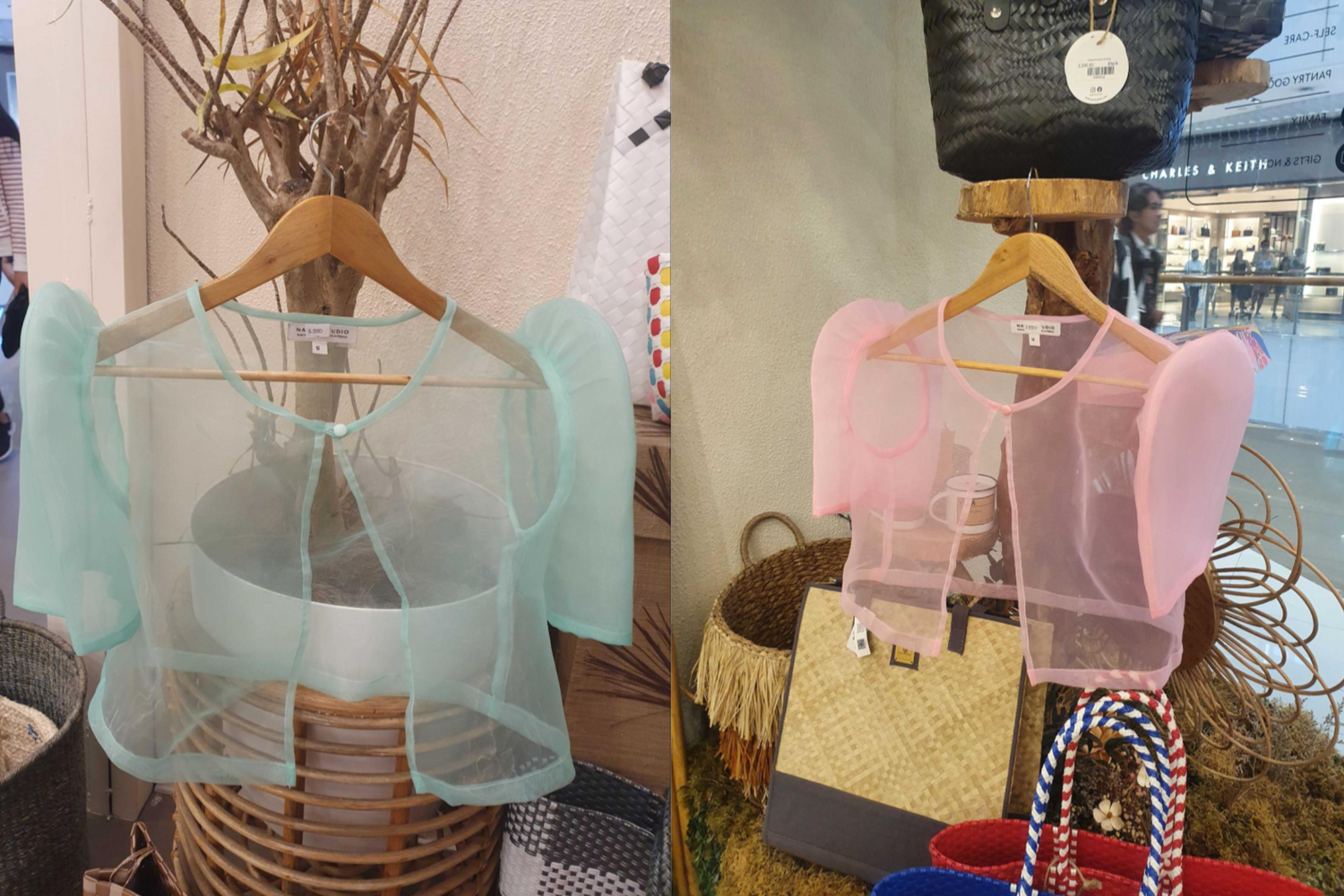By Nathaniel T. Dela Cruz
The best Filipino artists, chefs, and artisans gathered in San Francisco, California once again for the second edition of Merkado Kultura, a curated makers’ market.


Filipinos and Filipinos at heart flocked the Kalayaan Center in the Philippine Center Building, along Sutter Street for the 2nd Merkado Kultura, where Filipino products were front and center from May 5 to 7.
The event was a "curated makers’ market," but what does that mean?
On Merkado Kultura's website, it says that the items for sale at the event are "handcrafted, artisanal, and sustainably made products." Great products made by amazing Filipino and Filipino-American businesses.
The exhibitors were carefully selected. They aren’t just a hodgepodge of vendors selling random knick-knacks.
Those who came here expecting to find the best were not disappointed.
The best of the best
The 2nd Merkado Kultura showcased some of the best Filipino American-owned businesses in the United States.


Foodies definitely checked out Chunky Butt Ice Cream (a family-owned ice cream desserts shop), Filiflavors (modern Filipino snacks and ingredients), Kokak (chocolates), La Kalidad (breads and pastries), Mackbox desserts, Narra (oat milk lattes), Oodaalolly (Swiss chocolate with a Filipino Twist), and the dessert shop Ube Galore. Meanwhile, Sarap Now sells AAPI-made products, including Filipino food favorites.

While Filipinos, without question, love food, Filipinos are also very creative. That's why businesses like Hulma (modern minimalist jewelry line), Pampasaya (home decor), RĒJINS (wellness brand that makes skincare products free from phthalates, fragrances, and drying alcohols), Sewn Sandals (footwear), Gaenz (women's activewear brand), Lu France Interiors, (specializing in naturally dyed textiles and handmade, ethically sourced and artisanal home decor curated for intentional design), and Studio Zedsie (pottery) were also present here.


Kubo California, another exhibitor present at the 2nd Merkado Kultura, posted this on its official Instagram account:
“The synergy within the Kalayaan Hall was indescribable. It really felt like everyone sincerely celebrated each other’s talents, passions, and creativity. Friendships were forged and memories were made. I seriously cannot wait to see them again.”
Meet and greet
In the age of the internet, e-commerce, and social media, it is not difficult for companies to introduce their products to customers who need not leave home.
What events like the 2nd Merkado Kultura do is give customers the chance to meet business owners face to face and get to know them better. Because the truth is, there is more to these businesses than selling Filipino products.
Many of these companies share a similar business model. Success through partnership and sustainability. Appropriate conduct and not cultural appropriation. A business that is not just profitable, but socially responsible.
They share the same vision: a genuine appreciation for Filipino culture, heritage, and identity should not be exploitative, but productive and beneficial for all parties. They have the same commitment, which is to be a part of a collective that builds networks where the true Filipino spirit can thrive, grow, and spread.
Fostering Filipino partnerships
Many of the businesses present at the 2nd Merkado Kultura source raw materials from local artisans in the Philippines. Many of them have nurtured a partnership with artisans including indigenous people and indigenous communities where creative crafts originated, practiced, and preserved. For example, Style Ana, a clothing company, uses locally sourced fabric.


Barong Barkada, known for Filipiniana, boleros, and stylish barong from pina, cocoon, and abaca, is in partnership with artisans from Lumban, Laguna.
Lu France Interiors is in partnership with textile weavers in the Philippine provinces of Ilocos Norte, Bicol, and Cebu.
Anthill, a clothing company, has partners from Luzon to Mindanao. Mang Abel Ti Abra in Abra, Ilocos Norte; Argao Weaving in Argao, Cebu; and Daraghuyan Bukidnon Tribe in Dalwangen, Bukidnon, are community enterprise partners of Anthill. Hand Crafters of Mary Enterprises in Tisa, Labangon, Cebu, and Sesotunawa in Lake Sebu, South Cotabato their craft partners and their textile partners include Eastern Weaving Room in La Trinidad, Benguet, Mangyan Heritage in Calapan, Oriental Mindoro, and Lake Sebu Weavers Association in Lake Sebu, South Cotabato.
Part of Anthill's production strategy is using zero-waste upcycled fabrics, scraps, and production end cuts.
Malingkat works with weavers and artisans from Sulu, Basilan Island, and Zamboanga City, Lanao del Sur, Maguindanao, and Lake Sebu, South Cotabato in Mindanao; and Marikina City, Abra, Albay, Aurora, Laguna, Quezon, and Rizal provinces in Luzon.
Giving back to the community
It is also worth mentioning that many businesses here at the 2nd Merkado Kultura are providing support and assistance to different causes.

For Narra Studio, "proceeds are proudly recirculated back to our partner artisan communities, used to support more artisans, and donated to charitable organizations and communities." Here at Narra Studio, you’ll find clothing, adornment, and items like home decor, blankets and throws, table settings and linens, even books and cards. All of these products reflect the artistry, weaving, and craft heritages of the Philippines and Asia.
Angkan is in partnership with Save The Children to help children in need of hygiene supplies, food, and education. Bago and Malingkat provide assistance to Abra, especially the local weavers affected by calamities. The clothing company Lacson Ravello donates to the Susan G. Komen Foundation, Women’s Cancer Resource Center, and UCSF Breast Cancer Center.

Pili & Blu (handcrafted earrings) supports the Autism community. Filiflavors, a 100% woman-owned small business and an ardent supporter of the Autism community, donates to two San Francisco-based non-profits: Support for Families of Children with Disabilities and Pomeroy Recreation & Rehabilitation Center.
Press
Asian Journal shares with its readers how Merkado Kultura came to be:
"Organizers France, Mel, and Bianca grew up in the Philippines, frequenting local curated bazaars and markets – something that they have aimed to bring to the U.S. Working with artisan communities and small businesses, their aim is to highlight and amplify the amazing skills, artistry, and talents of Filipino makers, connecting them to an audience beyond Filipino communities."
France Malvar (Lu France Interiors) Mel Nava (ShipIt), and Bianca (Filiflavors) worked tirelessly to bring together different Filipino and Filipino American-owned brands in the U.S.
The 2nd Merkado Kultura, curated by Lu France Interiors, was organized together with ShipIt and 1Export in the Philippines, and Filiflavors and Pili & Blu in San Francisco, California. This event was also made possible through the partnership with the Department of Trade and Industry through the Philippine Trade and Investment Center (PTIC) in Silicon Valley and the Philippine Consulate General in San Francisco.
Neil Frank R. Ferrer, the Consul General of the Republic of the Philippines in San Francisco, was quoted in an Inquirer USA news report saying "The Consulate is proud to host Merkado Kultura, where Filipino and Filipino American artisans and entrepreneurs have put their heart and soul into their craft.”
In a news article from Fox2Now, Philippine Trade & Investment Center Silicon Valley Trade Commissioner Celynne Layug praised Merkado Kultura for what it is doing for the Filipino American community in the city of San Francisco and the state of California as well:
“The success of Merkado Kultura's second pop-up event in San Francisco demonstrates the growing interest and appreciation for Philippine craftsmanship and products. The Merkado Kultura platform has also built a community of Filipino and Filipino American entrepreneurs that foster collaboration, uplifting each other by sharing their experiences, networks, and market base – the Filipinos’ ‘Bayanihan’ spirit.”





